The old woman who was about to be cremated suddenly burst into tears "resurrected" in the midst of the "hell" of COVID-19

5 | 0 Discuss | Share
When the second wave of Covid-19 swept into India with terrible destruction, people blamed the authorities for not taking tough measures to prevent the risk of the disease spreading on a large scale, until The epidemic broke out strongly, the already weak health system could not resist, leading to collapse. However, in order to prevent the epidemic, the first and most important thing is the people's awareness of prevention. Yet despite thousands of lives being lost because of the Covid-19 pandemic, many people in India are still so subjective that it is difficult to understand.
According to NDTV news channel, recently, a disturbing scene happened at a train station in India. Thousands of passengers rushed to "escape" to avoid being tested for Covid-19 when the train stopped at a station in Assam state. Reportedly, most of them are migrant workers, including women and children. These passengers traveled on a Kanyakumari-Dibrugarh Vivek Express train that departed Kanyakumari in Tamil Nadu and traveled through Kerala, Andhra Pradesh, Odisha and West Bengal over five days.
Assam state authorities have ordered Covid-19 testing for all people traveling by train to train stations in the state. The incident took place at Jagi Road station, about 60km from Guwahati. A video of the event, now going viral on social media, shows passengers rushing out of the railway station even as police and railway officials are trying to stop them.
In the end, authorities were only able to hold back a handful of people who got off the train at Jagi Road station to conduct Covid-19 testing. In fact, this is not the first time something like this has happened. In April 2021, a similar story took place in Bihar, when dozens of people simultaneously fled Buxar station to avoid Covid-19 testing.
A few days ago, Newsflare page shared a video recording the scene of people in Irugur village, Coimbatore district, Tamil Nadu state worshiping the SARS-CoV-2 virus as a goddess to pray for the end of the epidemic, causing public outrage. These people built a temple to the goddess "Corona", then prayed and offered offerings to hope for an end to the Covid-19 epidemic soon.
They say that prayer has helped India through many epidemics centuries ago. Therefore, the goddess "Corona" temple was established to pray for the country to soon overcome the Covid-19 epidemic.
The Covid-19 "hell" in India is still burning because the number of deaths is constantly at over 4,000 people per day. In the past 6 weeks alone, Covid-19 has claimed the lives of 120,000 people. The number of deaths in a day was so great that crematoriums were overloaded, people had to run everywhere to find a place to cremate the bodies of their loved ones. Recently, people were even more shocked when they discovered more than 2,000 bodies wrapped in turmeric-colored cloth buried on the banks of the Ganges River. All exposed after heavy rain.
Mr. Shirish Gupta, a local businessman, said that the number of deaths from Covid-19 in India has pushed up the price of cremation services. A package of Hindu cremations currently costs Rs 15,000 - 20,000 (about VND 4.6-6.2 million). The poor cannot afford this and they are choosing to bury along the river.
A person working at the radio station shared: "Everything was unbelievable, I have never seen anything so horrible. In the air filled with the smell of corpses, we had to use boats to pull each body to the shore. So sad!".
Although riverside burials have been going on for a long time, such large numbers in the midst of the Covid-19 pandemic have raised concerns. Below are images that show the haunting scene at the "mass grave" of hundreds of people on India's most sacred riverbank.
However, the Indian government still rejected the call of leading medical experts for a nationwide blockade. in fact, the government of Prime Minister Narendra Modi has done this before and has learned the lesson. Experts say shutting down the country again is an impractical solution in India.
When the first wave of Covid-19 hit India in March 2020, Prime Minister Modi announced the blockade order a few hours before it took effect, closing the entire border of the country, stopping travel between the two countries. states, shutting down businesses and asking people to stay home.
The four-month blockade has helped India control the spread of the Covid-19 epidemic but has cost the country dearly as the poorest and most vulnerable have no income, food and resources. trapped far away from their hometown.
Ajnesh Prasad, a professor at the Royal Jiaotong University Business School, said that only "certain individuals" living a luxurious life can stay at home and maintain social distancing. In addition, the conditions for the blockade order to be implemented and effective, such as staying at home, working and studying remotely, maintaining social distance, all need a stable internet connection, as well as a website. equipment such as electricity and computers. These "luxuries" most Indians can't own and most of them can't even go to a doctor or have an oxygen tank when the Covid-19 wave "sweeps" through major cities. . It can be said that India's struggling economy also makes it difficult for the government to impose a second nationwide blockade.
Ho Chi Minh City discovered a positive case for the first time with COVID-19 in Go Vap 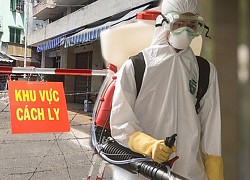 team youtube20:30:21 20/05/2021According to information on Tuoi Tre, the Department of Health of Ho Chi Minh City said that it had just detected one more positive case for the first time with COVID-19 in the city. Ward 8, Go Vap District. Authorities are in the process of zoning, tracing, isolating and disinfecting. Units including Go...
team youtube20:30:21 20/05/2021According to information on Tuoi Tre, the Department of Health of Ho Chi Minh City said that it had just detected one more positive case for the first time with COVID-19 in the city. Ward 8, Go Vap District. Authorities are in the process of zoning, tracing, isolating and disinfecting. Units including Go...

5 | 0 Discuss | Share

5 | 0 Discuss | Share
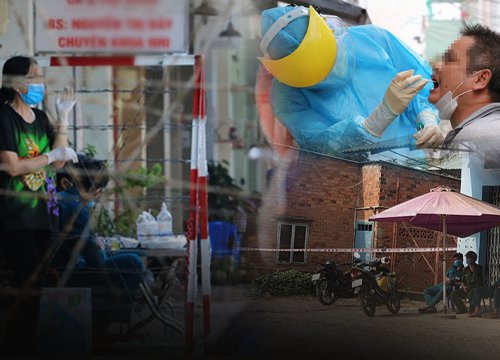
4 | 0 Discuss | Share

5 | 0 Discuss | Share

5 | 0 Discuss | Share

3 | 0 Discuss | Share

3 | 0 Discuss | Share

3 | 0 Discuss | Share

4 | 0 Discuss | Share

2 | 0 Discuss | Share
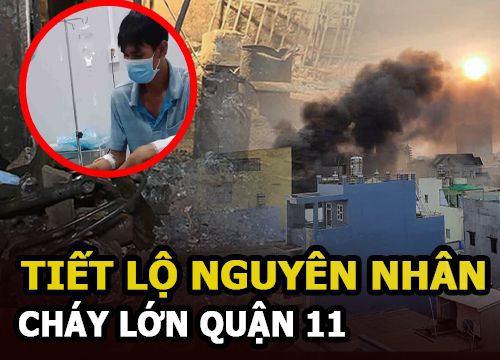
5 | 0 Discuss | Share

2 | 0 Discuss | Share
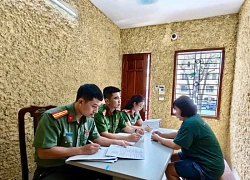
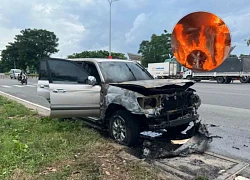



5 | 0 Discuss | Report